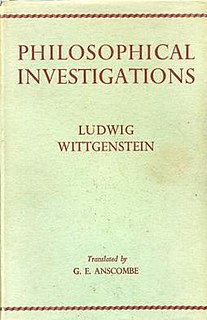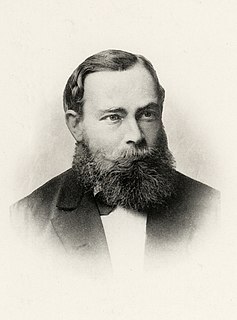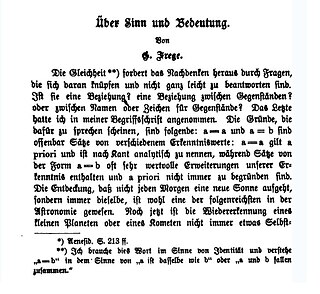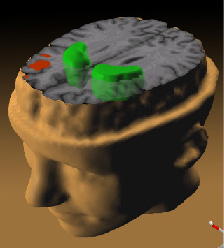Related Research Articles
In the philosophy of language, a proper name – examples include a name of a specific person or place – is a name which ordinarily is taken to uniquely identify its referent in the world. As such it presents particular challenges for theories of meaning, and it has become a central problem in analytic philosophy. The common-sense view was originally formulated by John Stuart Mill in A System of Logic (1843), where he defines it as "a word that answers the purpose of showing what thing it is that we are talking about but not of telling anything about it". This view was criticized when philosophers applied principles of formal logic to linguistic propositions. Gottlob Frege pointed out that proper names may apply to imaginary and nonexistent entities, without becoming meaningless, and he showed that sometimes more than one proper name may identify the same entity without having the same sense, so that the phrase "Homer believed the morning star was the evening star" could be meaningful and not tautological in spite of the fact that the morning star and the evening star identifies the same referent. This example became known as Frege's puzzle and is a central issue in the theory of proper names.

Philosophical Investigations is a work by the philosopher Ludwig Wittgenstein, published posthumously in 1953.

Saul Aaron Kripke was an American philosopher and logician in the analytic tradition. He was a Distinguished Professor of Philosophy at the Graduate Center of the City University of New York and emeritus professor at Princeton University. Since the 1960s, Kripke has been a central figure in a number of fields related to mathematical logic, modal logic, philosophy of language, philosophy of mathematics, metaphysics, epistemology, and recursion theory. Much of his work remains unpublished or exists only as tape recordings and privately circulated manuscripts.

Friedrich Ludwig Gottlob Frege was a German philosopher, logician, and mathematician. He worked as a mathematics professor at the University of Jena, and is understood by many to be the father of analytic philosophy, concentrating on the philosophy of language, logic, and mathematics. Though he was largely ignored during his lifetime, Giuseppe Peano (1858–1932), Bertrand Russell (1872–1970), and, to some extent, Ludwig Wittgenstein (1889–1951) introduced his work to later generations of philosophers. Frege is widely considered to be the greatest logician since Aristotle, and one of the most profound philosophers of mathematics ever.

In the philosophy of language, the distinction between sense and reference was an idea of the German philosopher and mathematician Gottlob Frege in 1892, reflecting the two ways he believed a singular term may have meaning.
In modal logic and the philosophy of language, a term is said to be a rigid designator or absolute substantial term when it designates the same thing in all possible worlds in which that thing exists. A designator is persistently rigid if it also designates nothing in all other possible worlds. A designator is obstinately rigid if it designates the same thing in every possible world, period, whether or not that thing exists in that world. Rigid designators are contrasted with connotative terms, non-rigid or flaccid designators, which may designate different things in different possible worlds.
A causal theory of reference or historical chain theory of reference is a theory of how terms acquire specific referents based on evidence. Such theories have been used to describe many referring terms, particularly logical terms, proper names, and natural kind terms. In the case of names, for example, a causal theory of reference typically involves the following claims:
Michael Gareth Justin Evans was a British philosopher who made substantial contributions to logic, philosophy of language and philosophy of mind. He is best known for his posthumous work The Varieties of Reference (1982), edited by John McDowell. The book considers different kinds of reference to objects, and argues for a number of conditions that must obtain for reference to occur.

The theory of descriptions is the philosopher Bertrand Russell's most significant contribution to the philosophy of language. It is also known as Russell's theory of descriptions. In short, Russell argued that the syntactic form of descriptions is misleading, as it does not correlate their logical and/or semantic architecture. While descriptions may seem fairly uncontroversial phrases, Russell argued that providing a satisfactory analysis of the linguistic and logical properties of a description is vital to clarity in important philosophical debates, particularly in semantic arguments, epistemology and metaphysical elements.
David Benjamin Kaplan is an American philosopher. He is the Hans Reichenbach Professor of Scientific Philosophy at the UCLA Department of Philosophy. His philosophical work focuses on the philosophy of language, logic, metaphysics, epistemology and the philosophy of Frege and Russell. He is best known for his work on demonstratives, propositions, and reference in intensional contexts. He was elected a Fellow of the American Academy of Arts & Sciences in 1983 and a Corresponding Fellow of the British Academy in 2007.

The linguistic turn was a major development in Western philosophy during the early 20th century, the most important characteristic of which is the focusing of philosophy and the other humanities primarily on the relations between language, language users, and the world.

Nathan U. Salmon is an American philosopher in the analytic tradition, specializing in metaphysics, philosophy of language, and philosophy of logic.
A direct reference theory is a theory of language that claims that the meaning of a word or expression lies in what it points out in the world. The object denoted by a word is called its referent. Criticisms of this position are often associated with Ludwig Wittgenstein.
In the philosophy of language, the descriptivist theory of proper names is the view that the meaning or semantic content of a proper name is identical to the descriptions associated with it by speakers, while their referents are determined to be the objects that satisfy these descriptions. Bertrand Russell and Gottlob Frege have both been associated with the descriptivist theory, which is sometimes called the mediated reference theory or Frege–Russell view.

Type physicalism is a physicalist theory in the philosophy of mind. It asserts that mental events can be grouped into types, and can then be correlated with types of physical events in the brain. For example, one type of mental event, such as "mental pains" will, presumably, turn out to be describing one type of physical event.
In semantics, semiotics, philosophy of language, metaphysics, and metasemantics, meaning "is a relationship between two sorts of things: signs and the kinds of things they intend, express, or signify".
Keith Sedgwick Donnellan was an American philosopher and Professor of Philosophy at the University of California, Los Angeles.

In analytic philosophy, philosophy of language investigates the nature of language and the relations between language, language users, and the world. Investigations may include inquiry into the nature of meaning, intentionality, reference, the constitution of sentences, concepts, learning, and thought.

Naming and Necessity is a 1980 book with the transcript of three lectures, given by the philosopher Saul Kripke, at Princeton University in 1970, in which he dealt with the debates of proper names in the philosophy of language. The transcript was brought out originally in 1972 in Semantics of Natural Language, edited by Donald Davidson and Gilbert Harman. Among analytic philosophers, Naming and Necessity is widely considered one of the most important philosophical works of the twentieth century.
This is an index of Wikipedia articles in philosophy of language
References
- ↑ Siobhan Chapman (ed.), Key Ideas in Linguistics and the Philosophy of Language, Edinburgh University Press, 2009, p. 202.
- 1 2 Leszek Berezowski, Articles and Proper Names, University of Wrocław, 2001, p. 67.
- ↑ G. W. Fitch, Naming and Believing, Springer, 2012, p. 1.
- ↑ Saul Kripke, Naming and Necessity . Cambridge, Mass.: Harvard University Press, 1972. p. 27.
- ↑ Howard Wettstein, "Frege-Russell Semantics?", Dialectica44(1/2), 1990, pp. 113–135, esp. 115: "Russell maintains that when one is acquainted with something, say, a present sense datum or oneself, one can refer to it without the mediation of anything like a Fregean sense. One can refer to it, as we might say, directly."